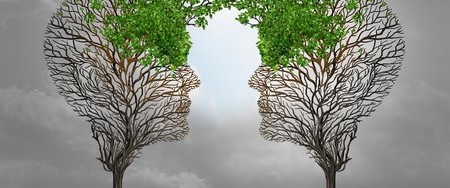It’s important that we hold ourselves accountable. To be in a healthy relationship with ourselves and one another, we need to be able to accurately identify when we do something right and when we do something wrong. If we hold ourselves accountable, we learn what works, what doesn’t, and how to be a safer partner, friend, or loved one.
If I hurt your feelings, I need to take responsibility for my actions so that I can keep the integrity of the relationship. If I unintentionally hurt your feelings, I might say something like, “I can see how that would be hurtful. I’d be hurt, too. I’m so sorry that’s what it felt like to you. I would never intentionally do something to hurt you.” Then I’d probably ask you more about what it was that made you feel bad. I’d want to know what happened so that we’re both understood, make sure we increase our fluency of one another’s language, and sharpen my tools so that we have a better chance of avoiding a repeat. If I intentionally hurt your feelings, I might say something like, “You’re right. I was wrong to say that. You have every right to be hurt. I’m so sorry I hurt you.” I would do everything I could to provide a space where you felt heard and safe enough to express your experience.
The same would be true if I did something right. I’d need to be able to identify and take ownership of doing something loving or nurturing. Anything I might do in our relationship would be important information for how I feel about you, the relationship, and myself. My behavior is what I do, but it’s not who I am.
Think about that for a minute. Our behavior is what we do; it’s not who we are. One of the valuable gifts of accountability is that it reminds us of this truth every time we use it.
Blame is different. Blame tells us that our behavior is who we are. While accountability says, “I did this” blame tells us, “I am this” and is usually followed by some form of punishment and shame. Blame isolates us from our loved ones and our best selves.
When we blame ourselves, it usually sounds a lot like, “It’s all my fault. I always do this.” There is often a feeling of shame behind self-blame. We’re ashamed, so we blame ourselves, which makes us feel more ashamed, and it just goes on. Using blame also means that we are less likely to own our attributes in a positive way. There’s a better chance that we’ll throw our favors or good deeds in someone’s face, use them as weapons, or use them as tools to blame.
Anyway, we use blame will result in a negative outcome. It doesn’t matter if we blame ourselves or someone else. The message we are sending is the same- “one (or both) of us is faulty.”
When we practice accountability (whether we’re holding ourselves or someone else responsible), we increase our social and emotional resilience. We have a better understanding of what went wrong and how to prevent it from happening again. We become better partners, friends, and colleagues because we’re much less toxic. We don’t have to delight in others’ mistakes and minimize their attributes because we are confident in ourselves. Accountability gives us freedom.
Love and Be Loved,
Natalie
